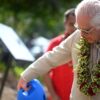Majority of California voters do NOT support cash reparations for slavery – after Gov Newsom’s task force recommended residents be given $5million handout
- A survey found that 59 percent of voters in California oppose cash payments
- The task force set up by Gov Gavin Newsom made several recommendations
- More than four in 10 voters were ‘strongly’ opposed to the cash reparations
Majority of California voters to NOT support cash reparations for slavery – after Gov Newsom’s task force recommended residents be given $5million handout
More than half of California voters are against cash payments for reparation for slavery, a new poll has found.
The research is showing a potential issue for lawmakers as they begin to consider reparation in the state next year.
Governor Gavin Newsom set up a reparation task force, which suggested awarding every black resident $5million.
It also believes that those entitled to the cash should have their personal debt wiped and guarantee a $97,000 income for 250 years and $1 homes.
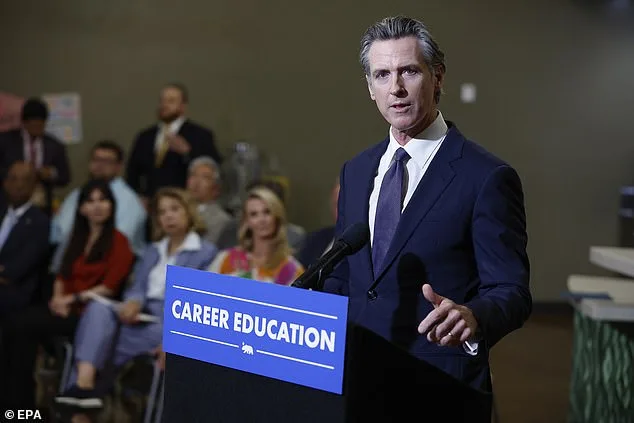
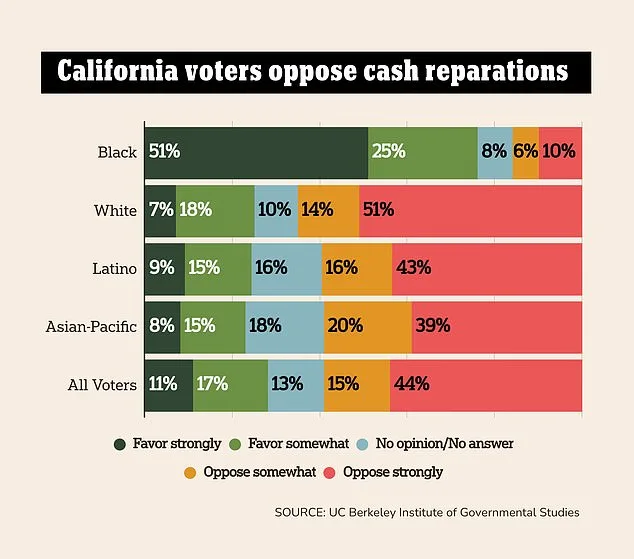
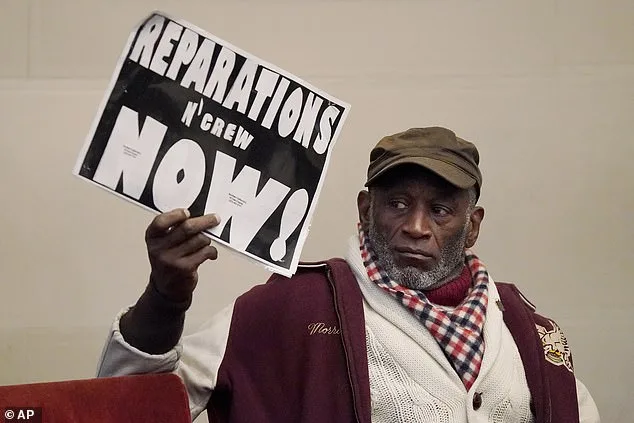
A UC Berkeley Institute of Governmental Studies survey commissioned by the Los Angeles Times found that 59 percent of voters oppose cash payments.
Of those Black Californians who were asked their opinion, 76 percent of them were in favor of reparations, while 51 percent of white Californians were ‘strongly opposed’ to the cash payment.
More than four in 10 voters were ‘strongly’ opposed to the cash reparations, despite Newsom sitting up the taskforce in 2020.
After two years of deliberation, the task force sent a final report and recommendations to the state capitol – where a decision will be made on the matter.
The group suggested that cash payments to all descendants should be based on health disparities, mass incarceration and over-policies as well as housing discrimination.
Up to $13,619 is recommended for health disparities each year the person has resided in California – which was worked out by comparing life expectancy between Black non-Hispanic and white non-Hispanic Californians.
Eligible descendants are recommended to be given $2,352 for mass incarceration, and housing discrimination is $3,378 for each year between 1933 and 1977, if they resided in California.
The poll also found that the majority of those who opposed the reparations said it was ‘unfair to ask today’s taxpayers to pay for wrongs committed in the past,”, with 60 percent of voters giving that opinion.
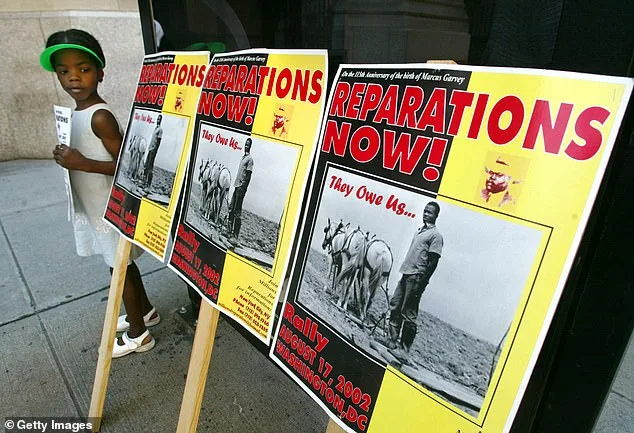
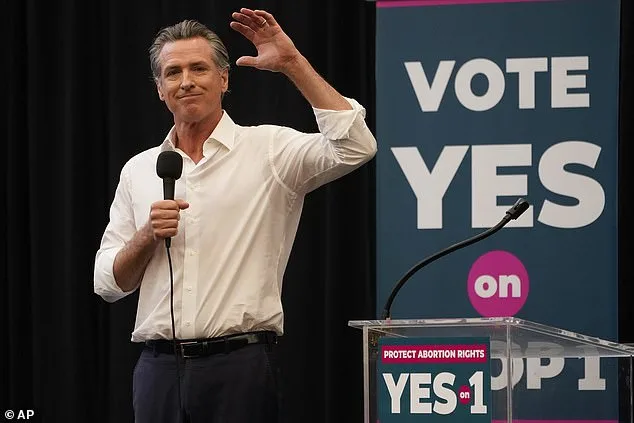
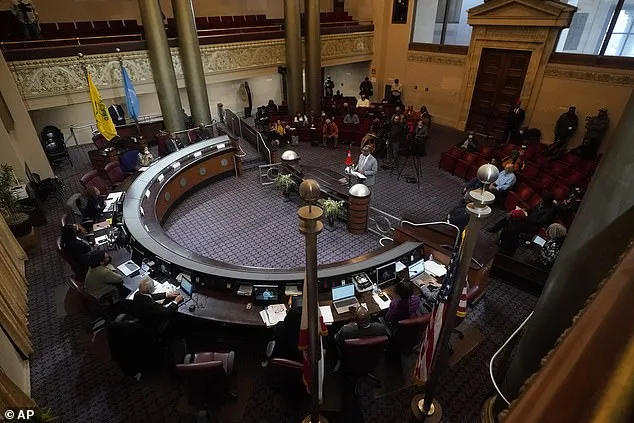
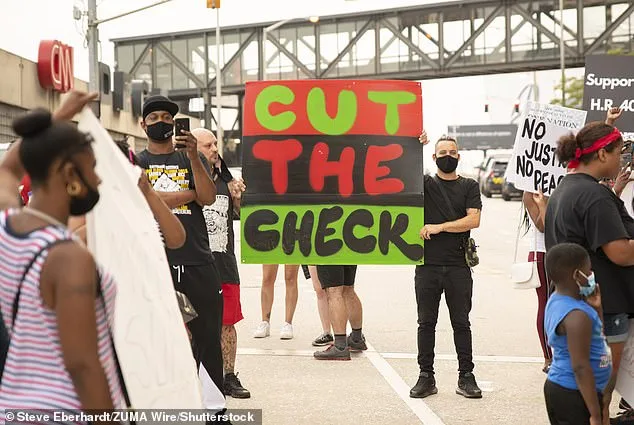
Of those asked, 53 percent said that “it’s not fair to single out one group for reparations when other racial and religious groups have been wronged in the past,’
Only 19 percent said their reason for opposing the proposal was that it cost too much, suggesting that the money was not the main issue.
Among Democrats, 43 percent favored and 41 percent opposed cash reparations, while Republicans were strongly against the proposal at 90 percent.
Despite widespread opposition to cash payments, 60 percent of those asked said that they thought that the legacy of slavery is affecting the position of the state’s Black residents today.
Nearly one in four asked had no opinion on reparations, while 29 percent said California is doing little.
Of those asked 26 percent said that the state was doing the right amount, with 22 percent feeling that they are doing too much.
The Berkeley Institute of Governmental Studies poll surveyed 6,030 registered California voters online in English and Spanish from August 24-29.
Democrat Congresswoman Cori Bush introduced a resolution to reignite a push for federal reparations in May, suggesting the total amount would be at least $14trillion.
America’s entire GDP was $25 trillion in 2022 and is currently $31.4 trillion in debt.
Lawmakers are currently engaged in tedious negotiations over where to cut the budget so they can raise the debt limit.


